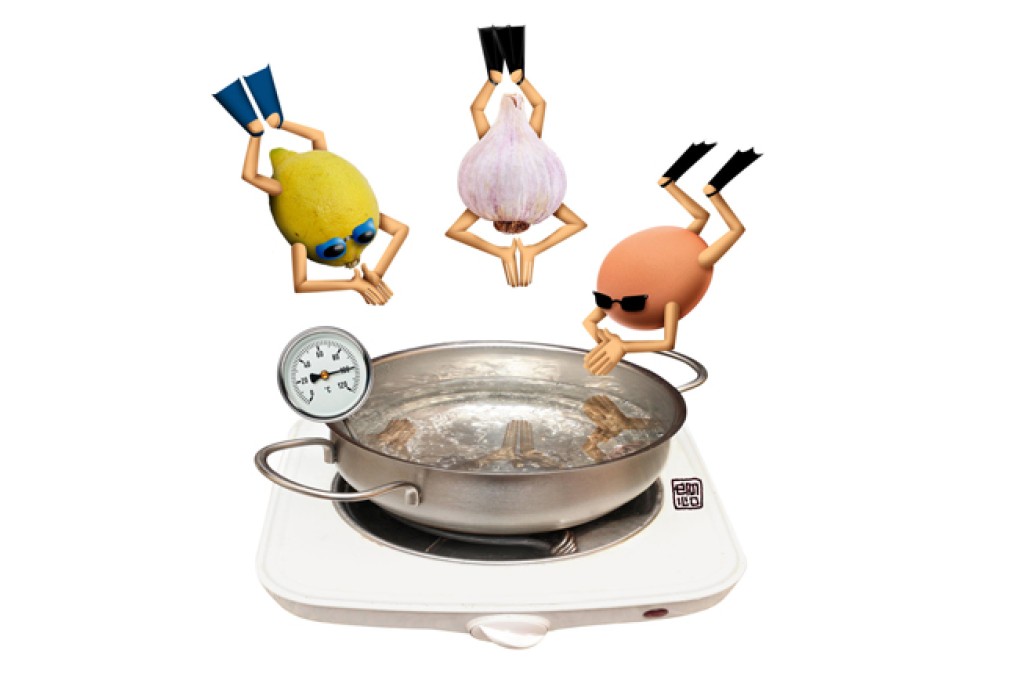
A friend sent me an e-mail about a brand of instant noodles that I recommended, saying she intended to buy them so she could expand her cooking repertoire from one dish to two. I replied that they taste even better if you add a hard-boiled egg, and went on to give my never-fail technique: put the egg in a saucepan, add enough tap water to cover it by about 1cm, bring to the boil, then take it off the heat, cover it with the lid and leave it for 10 minutes before rinsing with cold water and putting it in a bowl of ice water. She said that making a hard-boiled egg was beyond her culinary abilities. I argued that this is not really cooking; that if she can boil water for tea, she can cook an egg, because the only difference between the two is that the boiled water just happens to have an egg in it.
She's not the least-skilled cook I've met (I won't call her a bad cook because her one dish - pasta with tomatoes, Boursin cheese and fresh basil - is quite good). I actually met someone who didn't know how to boil water - in culinary school, of all places. One student put a large pan of water on the heat, and every few minutes, he'd lift the lid. I asked him why he was doing that and he said he wanted to see if it was boiling. I explained that he'd know once steam starts to escape from under the lid. He expressed astonishment - he didn't know steam came from hot water. I wonder what he's doing now.
Boiling is the easiest method of cooking, and it requires only three things: heat, liquid (it doesn't have to be water) and a cooking pot. Water boils when it reaches 100 degrees Celsius (at least at standard pressure; things get more complicated when you're at high altitudes). Because the ingredients come in direct contact with the cooking medium (the liquid), it's efficient and fast (although not as fast as frying, because the cooking temperature of oil is higher than that of other liquids).
The main problem with boiling is that the food can lose some of its flavour, especially if cooked in plain water. Most recipes call for the water to be flavoured with salt, at the very least, but you can also add aromatics, such as bay leaf, garlic cloves, lemon zest and spices or herbs. Instead of using water, you could also use meat or seafood broths, wine, sugar syrups or cream, any of which will add much more flavour than water.
Truc (tryk): noun, masculine, trick, gimmick, device. A French word for a chef's secret.